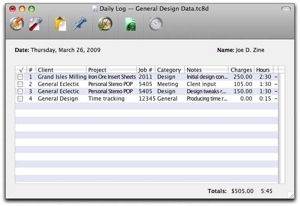By Greg Mills
The notion of “cloud” computing or actually cloud storage has been around for a while now. The Internet allows files to seamlessly be stored on a remote server “in the cloud.” The cloud is not to be confused with Heaven, as there is a devil in the details of cloud computing.
Malcrosoft (misspelled intentionally) attempted to implement applications that reside on their servers that you sort of rent instead of own. You never really have the application, as such, on your computer and the files can be printed out or stored on your local computer or their server. Typical of those able to screw up a stainless steel ball bearing, the Microsoft cloud had all sorts of problems including lost data. Oops, now you see it, now you don’t. Would you really trust the book you have been writing to a remote server somewhere in Redmond?
Also typical of Microsoft, the basic reason for the cloud concept they came up with was related to money and Steve Gates’ lost sleep. He was known for staying awake at night worrying about the pirates out there who weren’t paying into his fortune.
Google has cloud apps that I hear is are bit better than the early cloud concept pioneered by Microsoft. Again the notion is that you rent software rather than own it. Have you ever seen a company as big as Google or Microsoft that ever failed to calculate the best return for their investment? Again, as with anything related to web storage security issues are bound to come up. Lost data, hacking and access glitches can be expected.
While I have .Mac, (now known as MobileMe — and who came up with that name?), I tend to use it more for syncing my MacBook Pro, iPhone and now iPad than storing things. Apple has worked hard to make it work so smartly that you never notice anything — except that it works. At home, when an email comes in the iPad or iPhone normally dings first and a minute or two later the WiFi connected MacBook chimes in. It seems random which mobile device gets an email first.
The “cloud” at .Mac sorts out the emails as to which ones have been read, which ones have been sent and which ones have been thrown away. I have noticed that all three devices agree on all the email after a few minutes’ time.
In my way of thinking, as memory storage has gone down so drastically in price, the cloud model for web applications is really more to the software companies advantage than to mine. Hard drives are getting so cheap it makes little sense to store information in the cloud unless you need it on multiple devices. Even with iPad, I bought the 64GB version to be able to store enough data on my own device that I won’t run out of memory quickly.
I expect access to external hard drives from iPad soon. According to the manager of my local Apple store, the USB camera connection device is not expected to access a USB hard drive. Accessing hard drive memory through WiFi or bluetooth is more likely later this year from the iOS 4. Third party apps might allow it already, but I haven’t investigated that yet.
Connection to the cloud is already up and running from iPad. The recent hack into AT&T’s
system to steal email addresses is an embarrassment to AT&T and Apple. I don’t know yet if my email address has been hacked but, it just confirms my suspicions and fears about the notion of thinking a great benevolent hard drive in the sky can be trusted.
The notion of digital delivery of books, magazines, movies and streaming music from the cloud makes some sense, as that is where it comes from in the first place. Memory hogs like videos would eat up my iPad’s 64GB in no time. Buying the right to stream videos makes them more manageable, but defeats the idea of access away from home.
Paying good money to buy digital content without the media is one thing, but to not even get it to reside on my own hard drive pushes it a bit far, at current prices. With a DVD or book you can loan them to a friend, or even sell them, but when you pay the same amount of money for a digital copy you get to see it, but have no ownership of your copy. There needs to be a major discount to give up the disk or physical book. This will be sorted out by the market place. I suspect Apple is expecting to see reduced prices and a spike in volume in every form of digital “go to market” content.
(Greg Mills is currently a Faux Artist in Kansas City. Formerly a new product R&D man for the paint sundry market, he holds 11 US patents. He’s working on a solar energy startup using a patent pending process of turning waste dual pane glass into thermal solar panels used to heat water. Married, with one daughter still at home, Greg writes for intellectual web sites and Mac related issues. See Greg’s web sites at http://www.gregmills.info . He can be emailed at gregmills.mac.)



